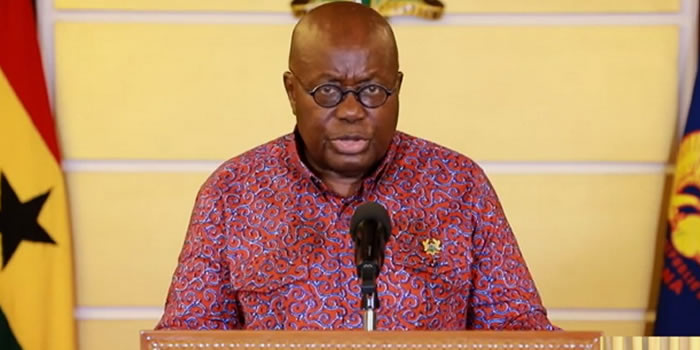Adverts
GENERAL
Government outdoors national energy transition plan in November
The President, Nana Addo Dankwa Akufo-Addo, is expected to outline Ghana's roadmap from fossil-based to clean energy supply and consumption in November this year.

Date Created : 9/29/2022 12:00:00 AM : Story Author : Ghanadistricts.com
Dr. Mohammed Amin Adam, the Chair of the National Energy Transition Committee, disclosed this in an interview with the Ghana News Agency on the sidelines of a stakeholder dialogue in Accra.
The program also saw the launch of a report on Ghana’s Critical Minerals and Energy Transition, which looked at the sector and opportunities for diversification, governance challenges and policy pathways.
The energy transition plan is to guide the country's implementation of policies that will enable the country to make significant improvements from the use of fossil fuels to renewable energy.
Dr. Adam, who also is the Deputy Minister of Energy, said: “We’re looking at the most feasible cost-effective locally contextualized plan that will meet our aspirations as a country and we’re very confident that by the second week of November, the President will launch the energy transition plan.”
Underscoring the essence of transitioning to renewable energy, he noted that: “In 1990, the energy sector contributed about 12 per cent to emissions in Ghana. By 1999, its contribution had increased to 36 per cent.”
“This means that as we continue to increase our consumption of energy, the current systems we have will increase our carbon dioxide, and this is why energy transition is so critical,” the Deputy Minister said.
He said the country had incorporated components of the energy transition plan to address the critical minerals sector because it formed part of efforts to achieve a long-lasting transition that supported Ghana’s industrial transformation.
He said the incorporation was important because it offered the country opportunities to transition to green energy through the exploitation of critical minerals.
Dr.Adam said for example lithium was required in the manufacturing of battery cells, as such, it was important for the Government to create the atmosphere for investors to build the manufacturing space to help produce batteries.
He said the Government would continue to improve the country’s mineral resource architecture to ensure transparency and engender a conversation that would support the sector’s contribution to national development.
Mr.Martin Kwaku Ayisi, the Chief Excellence Officer (CEO) of the Minerals Commission, urged the Government to work closely with all stakeholders to implement strategic measures to increase local participation in the transition agenda.
He called for deliberate efforts to ensure that local participation in raising funds to support the transition agenda was made a priority, which would ensure the retention of funds in the country to support the sector and national development.
Mr. Ayisi, therefore, asked that local content policies were aligned with the country’s industrialization drive, without overemphasizing taxation and incentives as the main driver of revenue for the country.
Dr. Theo Acheampong, the Project Consultant, provided details on the report and noted that the country’s critical reserves had 6,000,000 tonnes of iron ore; 900,000 tonnes of bauxite; 14,500 tonnes of lithium and 13,000 tonnes of manganese.
He urged the Government to formulate policies that would attract and retain downstream manufacturing capacity in-country and alignment of the critical minerals sector development with Ghana’s broad industrial policy.


 facebook
facebook X (twitter)
X (twitter) Youtube
Youtube +233 593 831 280
+233 593 831 280 0800 430 430
0800 430 430 GPS: GE-231-4383
GPS: GE-231-4383 info@ghanadistricts.com
info@ghanadistricts.com Box GP1044, Accra, Ghana
Box GP1044, Accra, Ghana